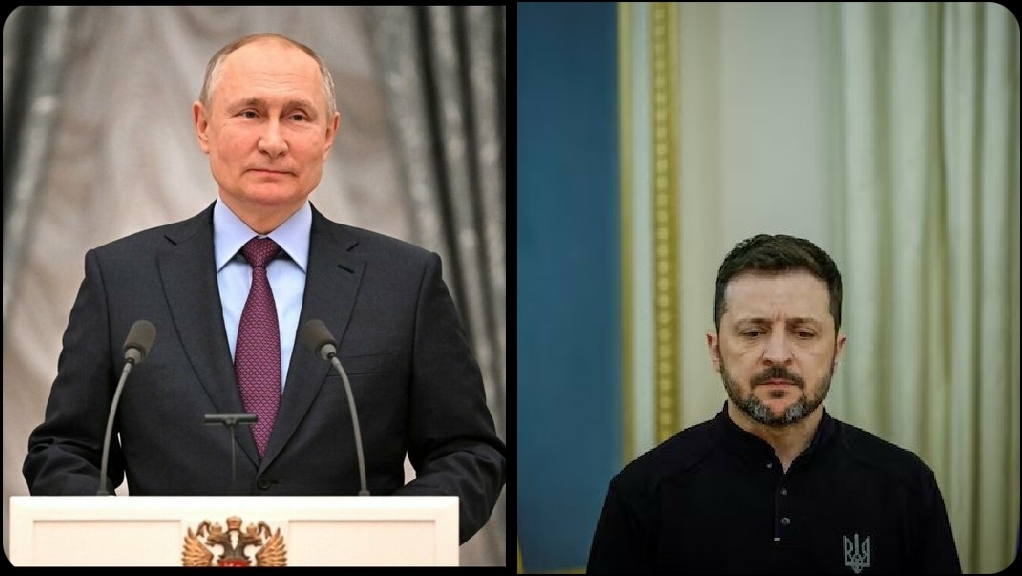
Ukraine’s Daring Drone Strike on Russia: A Game-Changer in the War – What You Need to Know

On June 2, 2025, a significant escalation in the ongoing conflict between Ukraine and Russia captured global attention.
A post on X by World_Affairs11 revealed that Ukraine, with assistance from other nations, executed a bold drone strike deep within Russian territory, targeting and destroying strategic bombers critical to Moscow's military operations.
This operation, dubbed "Spider's Web" by Ukraine's Security Service (SBU), marks a pivotal moment in the war, showcasing Ukraine's growing military capabilities and the vulnerabilities of Russia's aging air fleet.
The attack focused on high-value Russian assets, including the Tu-95 and Tu-22M strategic bombers, which are integral to Russia's ability to launch long-range missile strikes on Ukraine.
Reports from ABC News on the same day confirm that the operation targeted air bases like Belaya and Olenegorsk, with Ukraine claiming to have damaged or destroyed 34% of Russia’s fleet of nuclear-capable bombers.
The Tu-160, a supersonic strategic bomber, was also reportedly hit, a significant blow given that fewer than 20 of these aircraft are operational, according to UNITED24 Media.
The loss of even one Tu-160 is a strategic setback for Russia, as production of these bombers is limited and heavily constrained by wartime sanctions.
What makes this strike particularly notable is the method of execution. Ukrainian forces employed small, inexpensive drones in what experts describe as an "extremely complex" operation.
These drones, some hidden in wooden sheds on trucks for stealth, were able to bypass Russian defenses and strike at the heart of its military infrastructure.
Ukrainian expert Valeriy Romanenko, quoted by ABC News, noted the precision of the attack: a tiny drone could pierce a bomber’s fuel tank with a cumulative charge, leading to devastating explosions.
This David-versus-Goliath tactic underscores the evolving nature of modern warfare, where low-cost technology can inflict disproportionate damage on high-value targets.
The X post sparked a flurry of reactions online, reflecting the polarized perspectives on the conflict. Some users, like @LezTonny, pointed fingers at NATO, suggesting the alliance's involvement in enabling Ukraine's strike.
Others, such as @Rajibctc1, criticized Ukraine for relying on external support, arguing that it reveals a lack of independent strength.
Meanwhile, @RagingGamerNL highlighted the hypocrisy in Russia's outrage, noting that Moscow has itself relied on North Korean troops and Iranian weapons in the war.
These reactions underscore the broader geopolitical tensions, with NATO's eastern flank likely emboldened by Russia's weakened air power, as noted in the UNITED24 Media report.
Ukraine's ability to carry out such a deep strike is almost certainly tied to the extensive military support it has received from Western allies.
By December 2024, Europe had provided €132 billion in aid, while the US contributed €114 billion, according to Wikipedia data on the topic.
A key shift occurred in June 2024, when the US and other allies relaxed restrictions, allowing Ukraine to use supplied weapons for strikes on Russian military targets near the border.
This policy change likely paved the way for operations like "Spider's Web," amplifying Ukraine's reach and impact.
The strike's implications extend beyond the battlefield. With Russia’s strategic deterrence weakened, NATO and its allies may find new opportunities for political and military maneuvering, particularly in Eastern Europe.
At the same time, the attack has set the stage for upcoming peace talks in Türkiye, with Ukraine’s delegation, led by Defence Minister Rustem Umerov, preparing to negotiate from a position of strength.
However, as @T838Benjamin warned on X, Russia’s retaliation could be severe, potentially turning this victory into a "nightmare" for Ukraine.
Ukraine’s drone strike on Russia’s strategic bombers is a bold demonstration of its military ingenuity and the critical role of international support.
It exposes Russia’s vulnerabilities while reshaping the dynamics of the conflict, with far-reaching consequences for both sides and their allies.
As the war evolves, this operation may well be remembered as a turning point, highlighting the power of innovation in the face of adversity.


